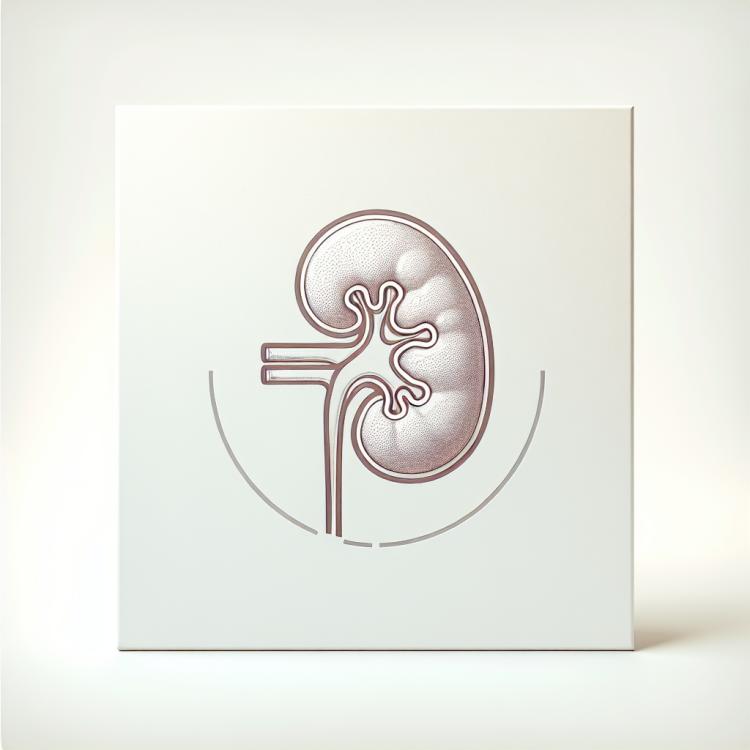
Kidney tumor: diagnosis, classification, and therapy
Information about kidney tumor
A kidney tumor is a pathological formation that arises from kidney tissue cells and is capable of uncontrolled growth. Kidney tumors can have various structures and may be malignant or benign.
A kidney tumor can manifest with various symptoms, including pain in the lower back, blood in the urine, and high blood pressure. Accurate diagnosis of a kidney tumor includes a comprehensive examination, including kidney ultrasound, CT scan, and magnetic resonance imaging. Treatment of kidney tumors may include surgical removal of the tumor, chemotherapy, or radiation therapy, depending on the type of tumor and the extent of its spread.
Etiology of kidney tumors
Kidney tumors can have a variety of origins, including genetic factors, environmental changes, and radiation exposure. Genomic mutation syndromes, such as familial von Hippel-Lindau and Bubenchik-Albino syndrome, can be significant causes of malignant kidney tumors. Genetic disorders or disruptions in cell functioning can also contribute to the development of kidney tumors with unclear etiology, highlighting the complexity of researching the origins of this disease.
- Genetic factors: Hereditary syndromes, such as familial von Hippel-Lindau, may increase the risk of kidney tumors.
- Environment: Exposure to carcinogens and toxic substances on organs may be a risk factor for the development of kidney tumors.
- Radiation exposure: Prolonged or intensive radiation exposure can lead to damage to kidney cells and the development of tumors.
- Cell cycle disorders: Defects in genetics or metabolism may stimulate uncontrolled cell proliferation in the kidneys, contributing to tumor development.
- Inflammation and chronic diseases: Prolonged inflammatory processes in the kidneys can create conditions for tumor formation due to instability of cells and tissues.
Clinical picture of kidney tumors
The clinical picture of kidney tumors can manifest a variety of symptoms, including lower back pain, blood in the urine (hematuria), deterioration of general well-being, as well as elevated blood pressure. Other symptoms may include weight loss, fatigue, anemia, swelling, and kidney function disorders. It is important to consider that some kidney tumors may present without any symptoms and be discovered incidentally during examinations for other indications.
- Lower back pain: a symptom that may indicate a kidney tumor and is associated with tumor growth and pressure on surrounding tissues.
- Blood in urine (hematuria): the presence of blood in urine can be a serious sign of a kidney tumor, requiring further investigation.
- Deterioration of overall well-being: persistent feelings of fatigue, weakness, and unbearable pain may be related to a kidney tumor.
- Increased blood pressure: a kidney tumor may disrupt the pressure regulation system and lead to hypertension.
- Weight loss and anemia: a kidney tumor can lead to weight loss, decreased appetite, and the development of anemia due to impaired organ function.
Expert opinion on kidney tumor treatment
Expert opinion on kidney tumor treatment typically includes approaches based on the type of tumor, its stage, and the overall condition of the patient. Surgical removal of the tumor or the kidney remains the main treatment method for most patients. Experts may also recommend radio- or chemotherapy depending on the characteristics of the tumor and metastases. It is important that the treatment is tailored individually, taking into account all aspects of the disease and potential complications.

Methods for diagnosing kidney tumors
Various examination methods are used for the diagnosis of kidney tumors, including ultrasound (US), computed tomography (CT), magnetic resonance imaging (MRI), and X-ray. Kidney ultrasound is the primary diagnostic method for tumors and allows for the assessment of kidney structure and the detection of tumors. CT scanning of the abdominal organs, including the kidneys, provides a more detailed image of kidney tumors and allows for the determination of their size, shape, and characteristics.
Additionally, MRI and X-ray may be used to confirm the diagnosis and assess the spread of the tumor. Some cases of kidney tumors require a biopsy for accurate determination of the tumor type. The combination of various diagnostic methods allows for a comprehensive assessment of kidney condition and the determination of treatment strategy for the tumor.
- Ultrasound examination (UZI): the first stage of diagnosing kidney tumors, allowing assessment of the structure of the organs and identification of tumors.
- Computed tomography (CT): a more detailed method of investigation that allows determination of the size, shape, and characteristics of kidney tumors.
- Magnetic resonance imaging (MRI): provides detailed images of abdominal organs, including the kidneys, for more accurate tumor diagnosis.
- X-ray: can be used for additional assessment of the condition of the kidneys and tumors in some patients.
- Biopsy: rarely required for accurate determination of the type of kidney tumor and further treatment plan.
Strategies for treating kidney tumors
- Surgical removal of the tumor: This is the main treatment method for kidney tumors used for both benign and malignant tumors.
- Radiofrequency ablation: A method where the tumor is destroyed using high-frequency energy.
- Chemotherapy: Used to treat advanced malignant tumors with agents that destroy tumor cells.
- Immunotherapy: A treatment method aimed at activating the immune system to fight tumor cells.
- Molecular targeted therapy: Treatment focused on specific molecular targets in the tumor to suppress its growth and development.
Prevention measures for kidney tumors
- Healthy eating: Consuming nutrient-rich foods, including fruits, vegetables, grains, and protein sources, promotes overall health and may reduce the risk of kidney tumors.
- Physical activity: Regular physical exercise helps maintain a healthy weight, strengthens the immune system, and lowers the likelihood of developing kidney tumors.
- Quit smoking: Nicotine and toxic substances present in tobacco smoke can increase the risk of malignant tumors, including kidney tumors.
- Regular medical check-ups: Undergoing regular medical examinations allows for the early detection of precancerous conditions or kidney diseases, facilitating successful treatment and prevention of tumors.
- Maintaining a healthy lifestyle: It is essential to lead a healthy lifestyle by managing stress levels, maintaining psycho-emotional balance, and avoiding excessive harmful factors for the body.